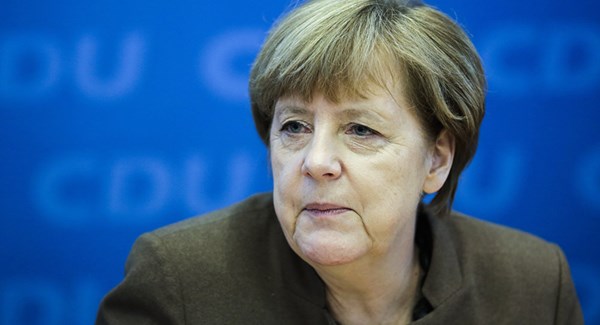EU leaders reject Merkel’s proposal to hold summit with Putin
EU leaders have rejected the initiative of France and Germany to hold the first summit since 2014 with Russian President Vladimir Putin.
The proposal, voiced by Angela Merkel and Emmanuel Macron and supported by Austrian Chancellor Sebastian Kurz, has provoked resistance from 10 EU countries, some of which threatened to veto the draft resolution, Bloomberg reported citing diplomats.
After late-night talks, Merkel herself stated that the idea had failed. It was not possible to agree on direct talks with Putin, the discussion was "comprehensive but at the same time ambiguous," she said.
"I personally would like a bolder step, but what happened is also OK, and we will continue to work," Merkel added.
Instead of a summit with Putin, EU leaders instructed the European Commission and the High Representative for Foreign Affairs to prepare a draft of additional, including economic sanctions against Russia, according to a draft document on relations with Russia, reported Politico.
The European Union "expects the Russian leadership to take a more constructive approach and take a political commitment to stop actions against the EU, member states and third countries," calls on Russia to "recognize responsibility for the full implementation of the Minsk agreements" on the Donbas and stresses the need for a "strong and coordinated response" to any further malicious and illegal actions of the Russian Federation," the resolution reads.
According to Reuters sources, the new sanctions could be aimed at Russian money laundering and oligarchs suspected of corruption abroad.
The EU also aims to expand cooperation with the countries of the former Soviet Union within the framework of the Eastern Partnership program, including the Central Asian republics.
Emphasizing "openness to selective cooperation with Russia" in areas of interest, the EU "condemns the limitations of fundamental freedoms in Russia, reduction of space for civil society and emphasizes the need for people's contacts to support civil society" in Russia, the document says.
Poland and the Baltic states said inviting Putin amid deteriorating relations would be the wrong signal.
Lithuanian President Gitanas Nauseda said the idea was like "trying to ask a bear to guard a pot of honey."
